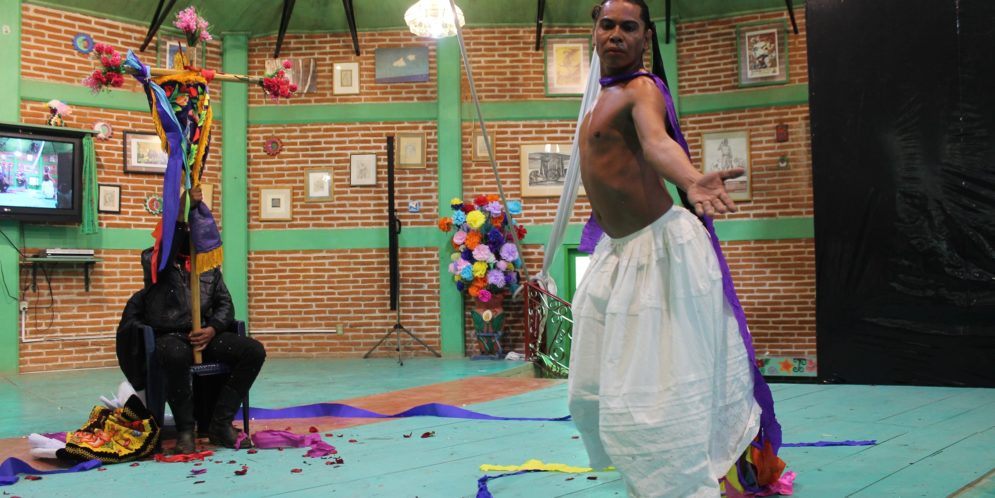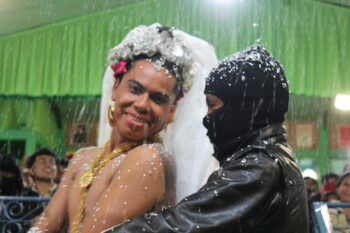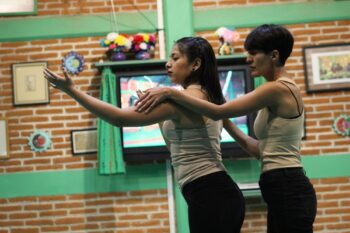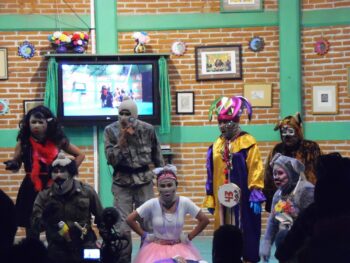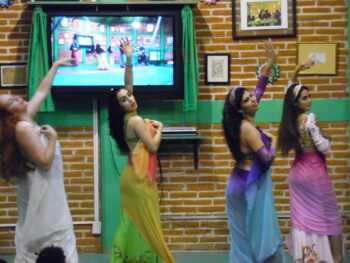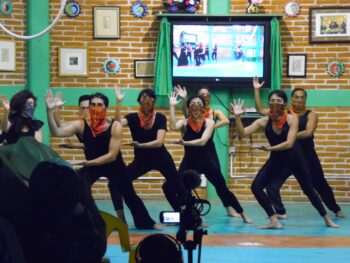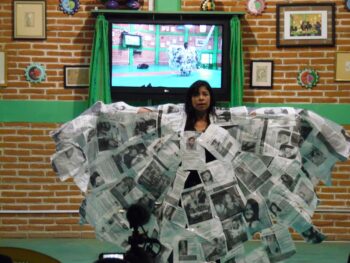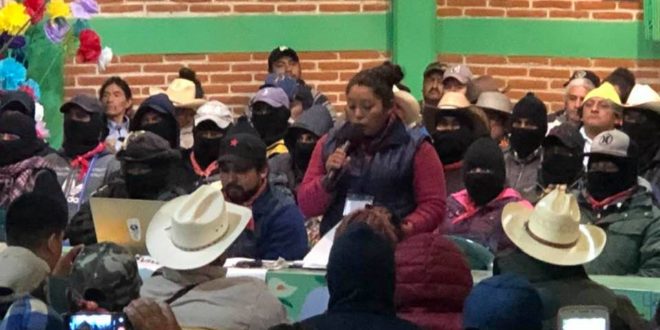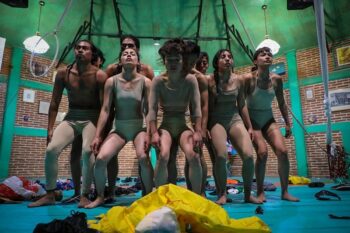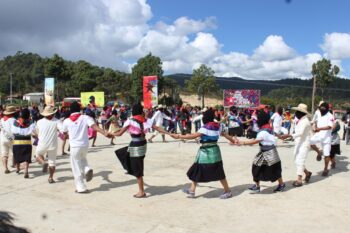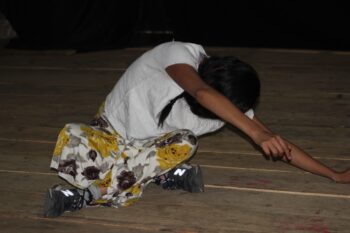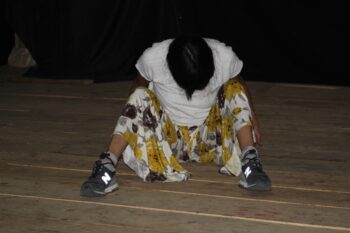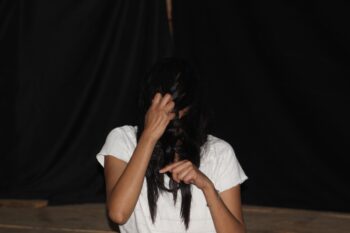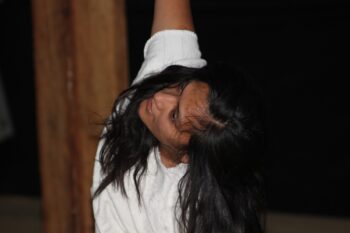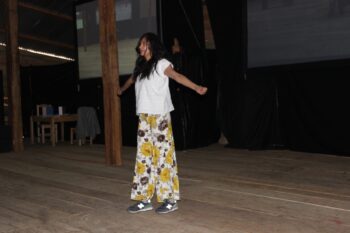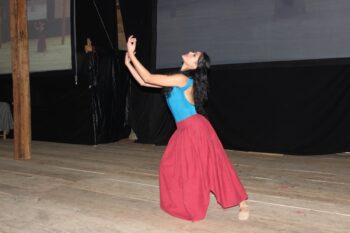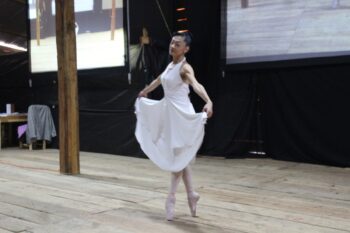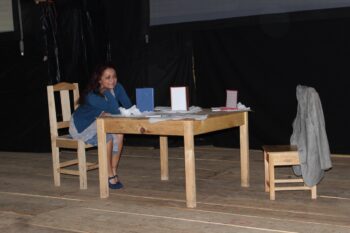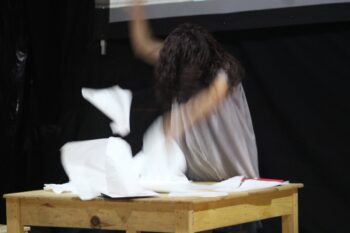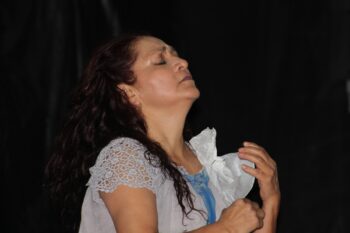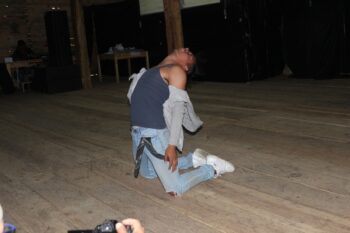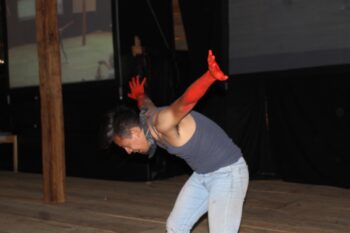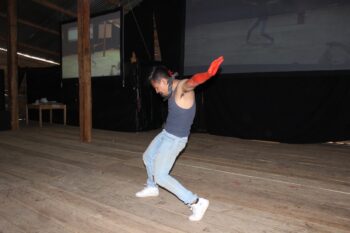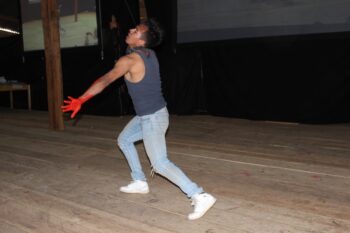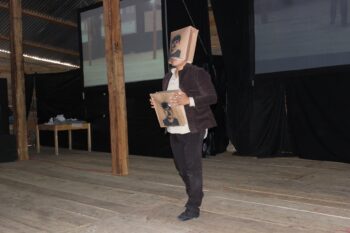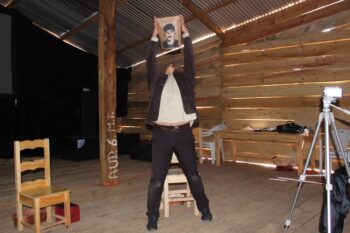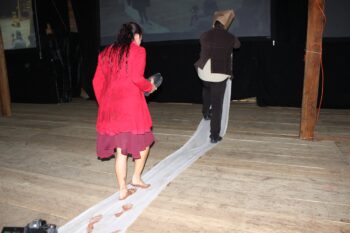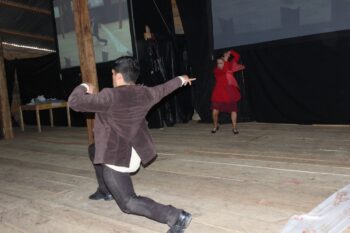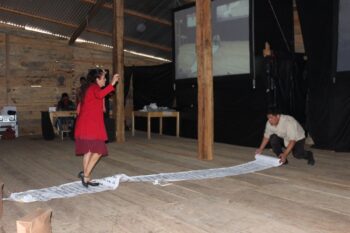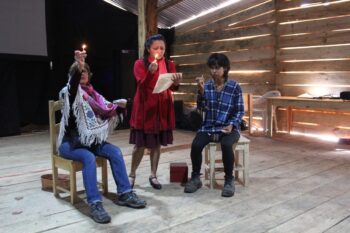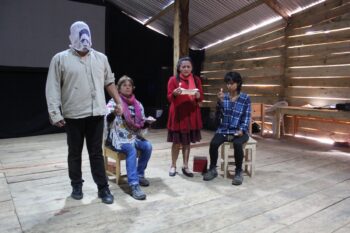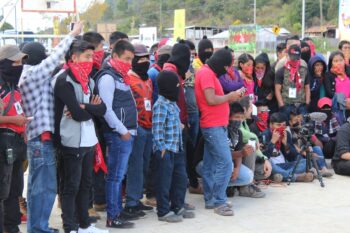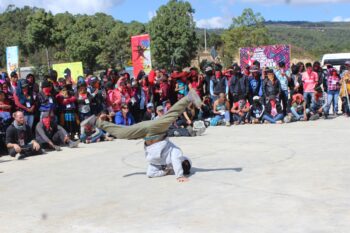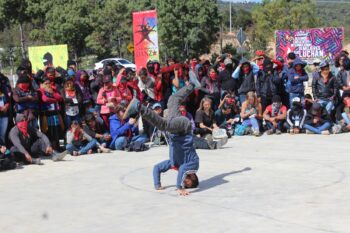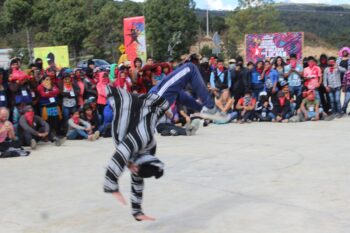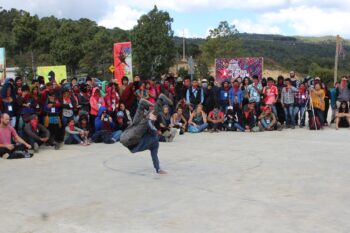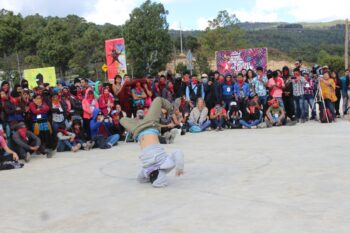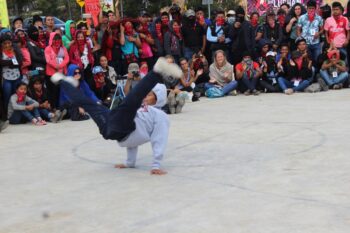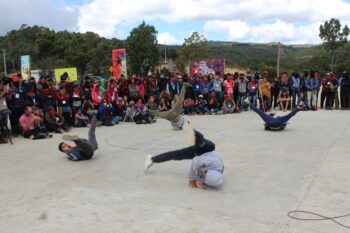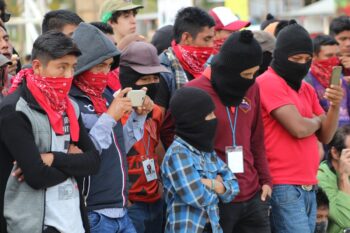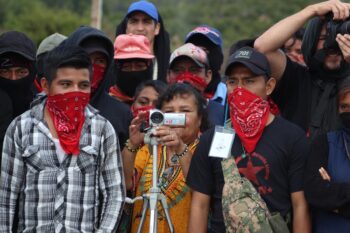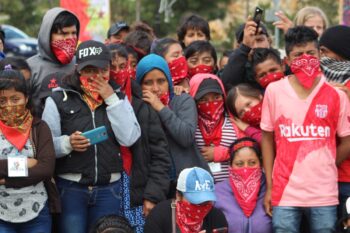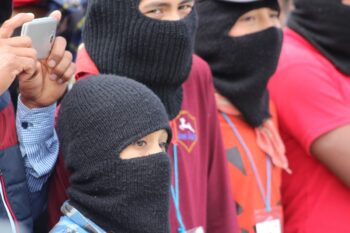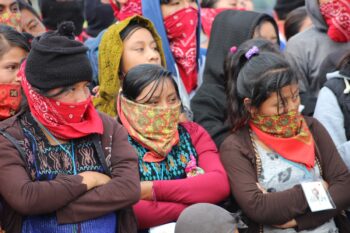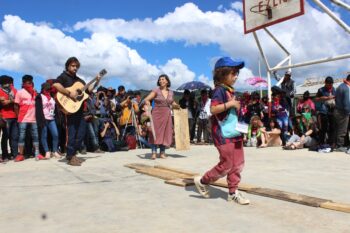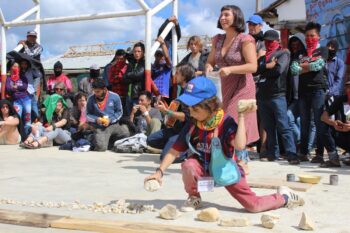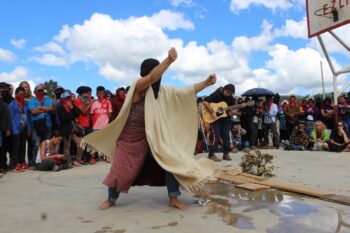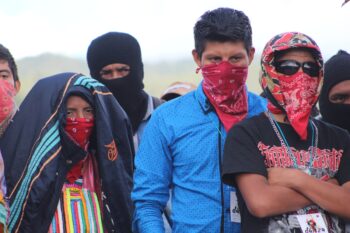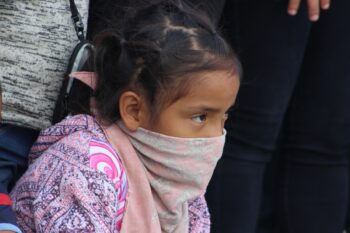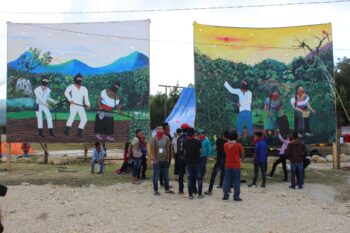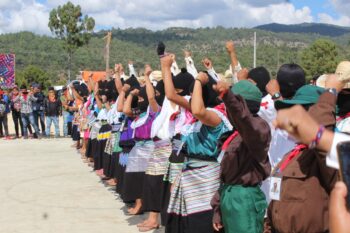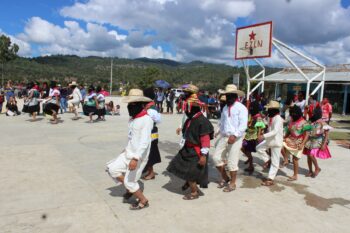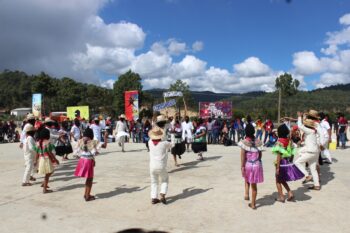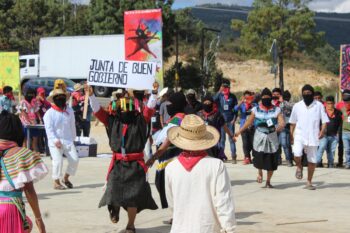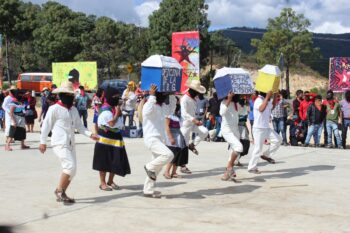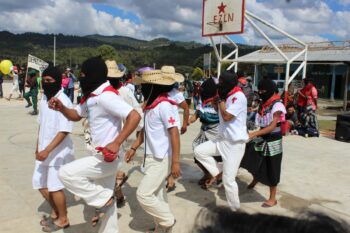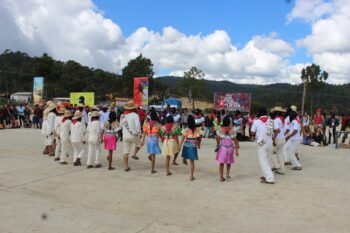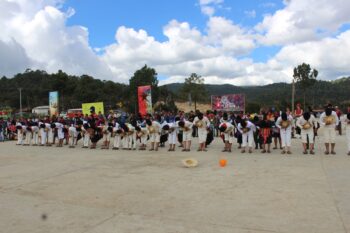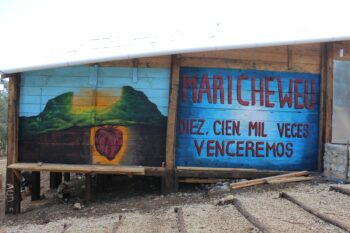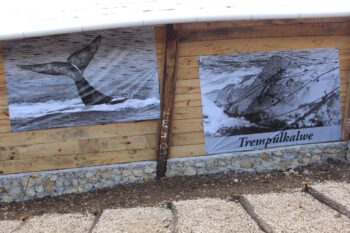Sorry, this entry is only available in Español. For the sake of viewer convenience, the content is shown below in the alternative language. You may click the link to switch the active language.
La danza es alegría, es festividad, es resistencia, es creación y recreación, es tiempo, es movimiento, es re-existencia y sí, también es pensamiento. En la India, el dios de la danza es Shiva Nataraj, quien destruye el mundo para que otro mundo pueda nascer. Como el mundo de muerte que hay que destruir para que la vida pueda surgir en otro mundo posible en el que florezcan nuestros sueños. O sea, el trabajo de Shiva Nataraj es bailarse otro mundo.
O, más cercano a casa: “En el antes no había después. El tiempo se estaba así quietecito, ansina como se está ahorita la noche. En el antes estaban los dioses más grandes, los que nacieron el mundo, los primeros (….) Así estaban los dioses en el antes, y empezaba a llegar en su pensamiento que era necesario inventar el después porque si no muy triste se iba a estar el mundo siempre parado en el antes y nunca llegando al después”, contó hace ya muchos años el Viejo Antonio. Y fue bailando que los dioses primeros pusieron el tiempo en movimiento, y así nació el después, al que hay que caminar siempre regresando al antes para poder avanzar. Bailarse otro mundo.
“Va a haber baile colgado de una nube”, dicen que dijo Defensa Zapatista.
Y sí, allá en la ballena zapatista, se puso el tiempo en movimiento ayer en la inauguración de la primera edición del festival CompArte de Danza “Báilate otro mundo”. Y sí, el viejo mundo pareció temblar, como amenazado por Shiva Nataraj, y en el caracol de Tulan Kaw, el caballo fuerte que no se rinde, no se vende, no claudica, nos condujo al sueño de otro mundo posible que se comienza a vislumbrar entre los escombros del nuestro.
En los próximos días, hasta el 20 de este mes, los zapatistas nos traerán exhibiciones de danza contemporánea, clásica, neoclásica, árabe, butoh, acrobacia, bailable, circo, performance, participativa, aérea, africana, dark belly dance hip hop fusión, moderna, hula hula y manipulación de fuego, además de talleres de danza contemporánea, expresión corporal, malabar, danza africana, danza árabe, así como pláticas y una exposición fotográfica.
La inauguración se llevó a cabo ayer, 16 de diciembre, con las palabras de bienvenida de la Junta de Buen Gobierno “Semilla que florece con la conciencia de los que luchan por siempre” del recién caracol de Tulan Kaw.
Hugo Molina presentó la danza del “Venado”, sagrada para los pueblos Yaqui. Arguelia Guerrero presentó “Se va la vida, compañera”, una obra de danza contemporánea que habla sobre las muchas mujeres que viven sometidas a las labores domésticas. La niña Libertad Hernández presentó la bella obra “La Esperanza es zapatista”, con música de Víctor Jara, dedicada a los niños, niñas y niñoas zapatistas. Hugo Molina presentó también “Tlakazkatl” (El hombre hormiga), una obra de danza contemporánea. Y Victoria Arts presentó el ballet clásico “Carmen”, que baila la relación amorosa entre hombre y mujer.
Ya fuera de la ballena, en el gran templete en la esplanada cerca de la carretera, Vica Rule presentó el performance “Requiem por el Planeta”, seguido la obra de fusión de danza árabe con otras danzas “Chiapaz”, con música de Julio Revueltas. El colectivo Shakti Arte Escena presentó “Mujer árbol”, una obra de danza butoh, una forma de danza japonesa creada en la década de 1950 después de las bombas de Hiroshima y Nagazaki, seguida por “Respirar”, con la participación de niñas zapatistas. Sofía Ivy García presentó un performance y acrobacia.
Fabián Guerrero y sus dos hijos pequeños presentaron el texto “Leer, escribir y editar también es bailar”, reproducido en la íntegra en audio abajo. Barro Rojo presentó el solo de danza contemporánea “Niña de tus ojos”, y Victoria Arts, “Zapata”.
L@s compañer@s zapatistas no podrían dejar de bailar, y estuvieron presentes con dos bellas obras.
Y el Circo Xutly y hermanos Nadayapa presentaron la obra del circo “p’al barrio” “Las aventuras de Trapeador y Cotonete”.
Después de la comida se realizaron talleres abiertos de danza contemporánea, expresión corporal y malabar, y se presentó el libro Barro Rojo, el camino, de Jorge Izquierdo, Laura Rocha y Fabián Guerrero.
El festival sigue hoy 17 y mañana 18 de diciembre a partir de las 10:00 en el caracol de Tulan Kaw, y continúa 19 y 20 en el caracol Jacinto Canek (CIDECI, San Cristóbal de Las Casas).
Ve aquí la programación completa.
Escucha/descarga algunos audios:
(Continuar leyendo…)



